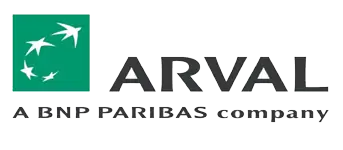
Sunshine, Seagulls, and Protecting your Paintwork this Summer
Finally, summer is here, the weather is mostly fantastic, and the beach is calling. Sunshine might be great for us to top up our vitamin D levels, but what about our cars? How do you protect your paintwork and interior from the sun and other summer hazards like sunscreen, ice cream and seagulls?
Here are some tips from Express Vehicle Contracts to keep your lease car in tip-top condition all summer.
Protecting your car from sun damage
We all know that protecting your skin from sun damage is essential. However, the sun can also do irreversible damage to your car. Over time, direct sunlight can fade interiors, warp plastics, damage leather, and fade your paintwork. Melted tarmac can also cause problems if it kicks up from the road and sticks to your car's wheels or underside.
The primary way to protect your interior is to park out of direct sunlight as often as possible. Seat covers protect your seats from sun exposure and are easier and cheaper to change when they fade than car seats. Seat covers can also be washed much easier to remove salt from seawater, ice cream spillages, and melted chocolate, among other things.
A windscreen cover will reduce the amount of sun entering the car, reducing the amount of fading. The cover also helps reduce your car's internal heat, reducing the risk of warped plastic and making it less likely that you'll burn yourself on your steering wheel.
Avoid leaving items in the car or in direct sunlight that can overheat and risk causing burns or fires. Battery packs and chargers should be kept out of the sun, as should metal seatbelt ends and other metal items.
Maintaining the exterior of your car is a little trickier as it is exposed constantly to the sun in the summer. Parking in the shade helps, but long-term care is about your cleaning and waxing routine. Regular waxing helps protect your paintwork and reduces fading, even with darker colours.
Seagulls and other bird poo
Seagulls are the bane of everyone's existence at the beach, but often your car bears the brunt of their behaviour. As well as cleaning off footprints and feathers, there is the poo to deal with. It is tempting to wipe or scrub it off. Doing this can damage your paintwork.
Rubbing dried poo off your car could scratch and damage your paintwork. All bird poo can damage paintwork if left over time. However, birds that live on the coast have the added problem of sand.
To remove without damage, you must wash the poo off and then wipe the area. Plain water should do the trick. Some drivers swear by fizzy water to help lift the poo from the paintwork; others use WD-40 to make it slip off. Whichever method you prefer, remember to get it wet or covered enough that it slips off easily before you get in there with a cloth.
Try to deal with the poo as soon as you see it and keep your paintwork clean and waxed to protect it as much as possible.
Other car care tips
Being prepared is the best way to care for your car over the summer. Avoid breakdowns by servicing your vehicle and checking your battery. Look for poor connections and corrosion. These are among the most common reasons for breakdowns. Also, check fluid levels and the state of your windscreen wipers.
Checking your air-con is also vital. No one wants to get into a hot car and not be able to cool down quickly after a long day at the beach. Air-con systems should be regassed at least every two years.
Simple car checks before you make your journey make a huge difference. The air pressure in your tyres increases in hot weather, increasing the risk of punctures and blowouts in weaker or older tyres. Check your pressures regularly, especially at the start of long journeys and when the weather changes.
Express Vehicle Contracts
Are you looking for the perfect leasing vehicle for the summer and beyond? Whether you need a sporty hatchback, a large family car, or something perfect for the office, we can help. Our vehicles come fresh from the manufacturer and are ready for whatever challenges you set this summer. Contact Express Vehicle Contracts to find out more.










